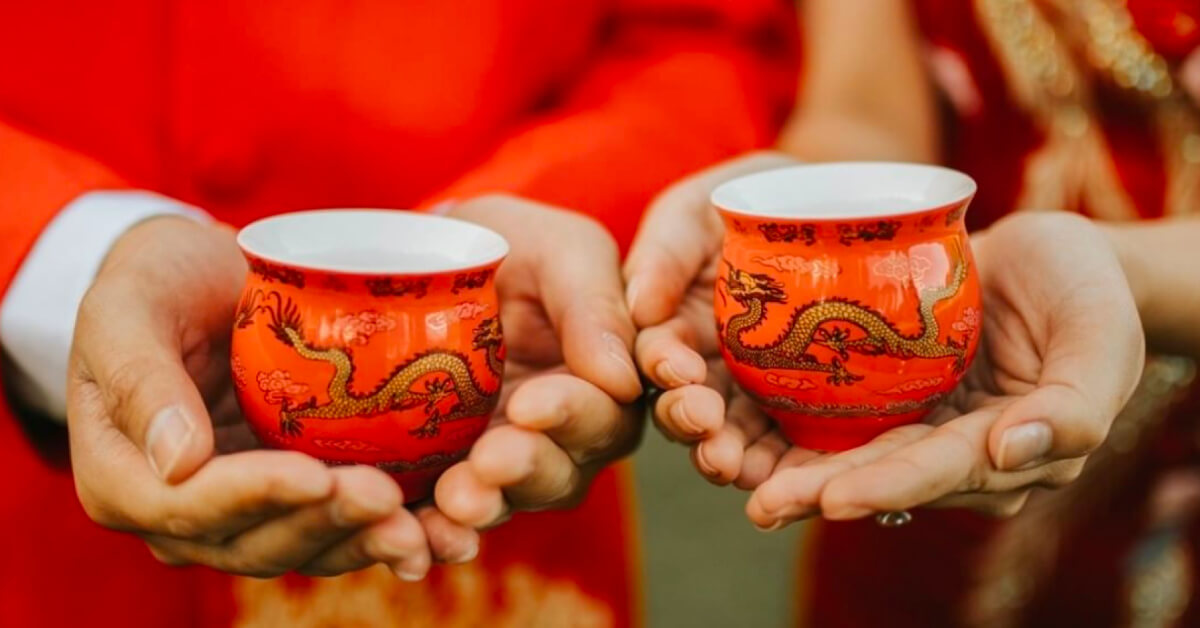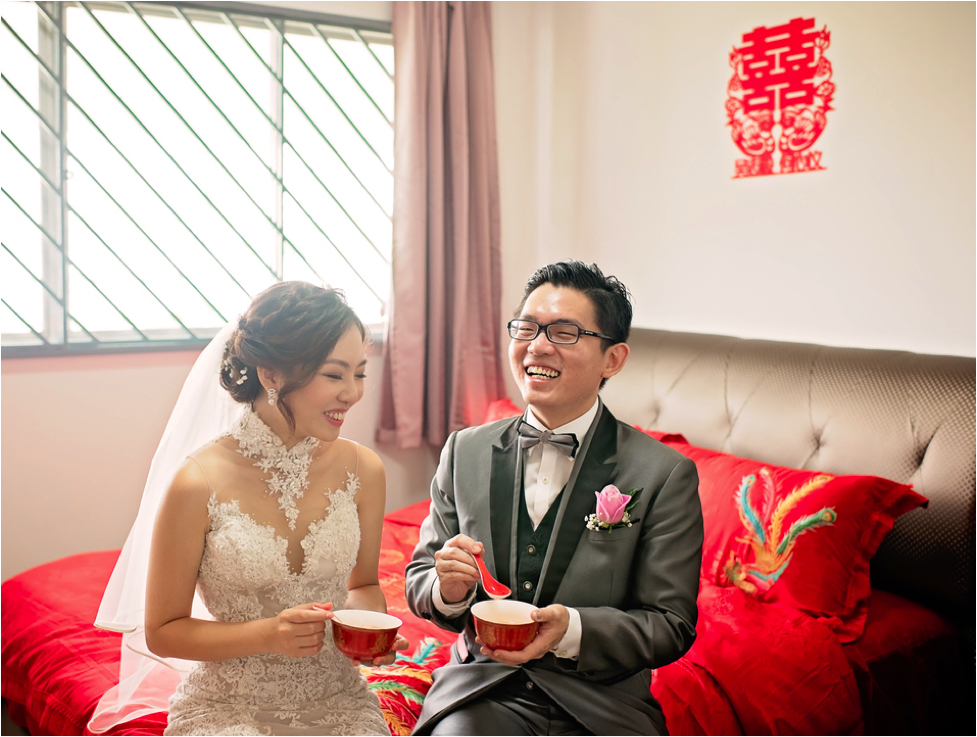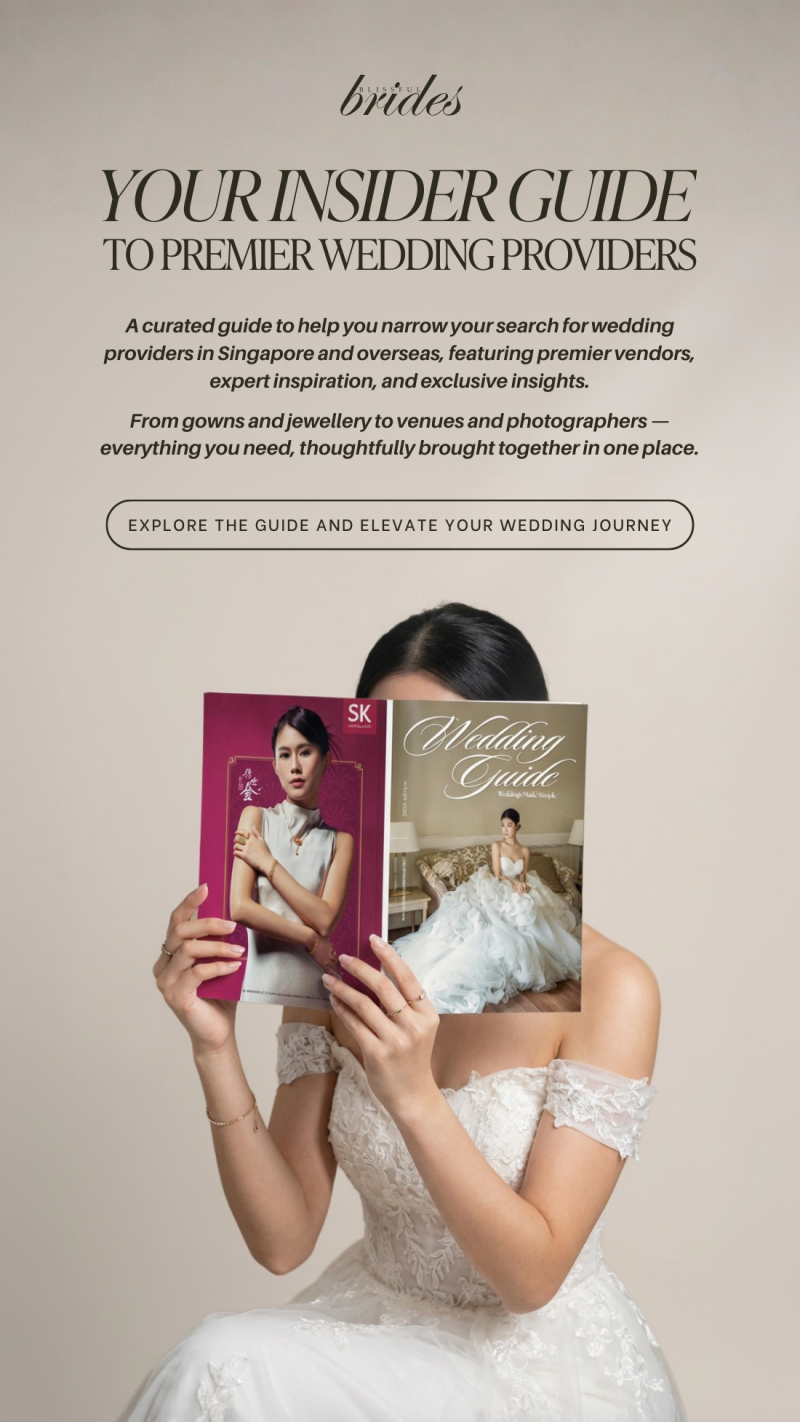The Number 4 & More: 5 Chinese Wedding Taboos to Avoid
2019-07-16

Source: @eastmeetsdress & @jaccy.chan
In preparation for the big day, brides- and grooms-to-be may know of the Chinese wedding rituals and traditions to adhere to for marriage blessing. But wait, there’s more – whether you believe in taboos or just the saying of “better safe than sorry”, here are 5 Chinese wedding taboos to take note of:
The Number 4
According to Chinese numerology, the number “4” is inauspicious. The words for “four” (sì) and “to die” (sĭ) are homophones – they have similar pronunciation but different tones and of course, entirely different meanings. As a result of this, couples are known to avoid days, months or even years of 4s for their wedding dates.
Keep in mind that as a form of etiquette, the number 4 should be avoided in red packets. On the contrary, the number “8” has a similar spoken sound with “to prosper”, so a good alternative to the dreaded number is to fill those ang baos with 8s!
Inauspicious Events
Inauspicious events such as funeral wakes are said to invite bad luck, and so should be avoided within 3 months of the wedding if possible.
In the event of the death of the bride- or groom-to-be’s mother or father, however, the couple has to get married either before a hundred days pass or follow the 3-year mourning period by Confucius’s suggestion and get married after.
Sleep in the Bridal Bed

Source: @loveinstills
Installation of the bridal bed refers to the process of blessing the marriage through the bedroom, which includes making the bed with a new set of wedding bed linen, lighting bedside lamps and inviting children to roll on the bed, amongst others.
Nobody should sleep on the bridal bed after its installation to avoid bad luck. However, if the couple decides to use the groom’s old bed as the bridal bed and the groom has to sleep in it before the wedding, then it is an exception to the rule.
Still, it is said that to occupy one side of the bed and leave the other empty puts a curse on either one of the couple’s health, so the groom can instead be accompanied by a young boy born in the Year of the Dragon to represent fertility.
Cut-Up Fish
As with the ingredients of the Prosperity Toss (yusheng), the dishes served at a Chinese wedding have symbolism to them. Similar to the above, the meaning of this dish comes from its similar pronunciation to “abundance” – for the couple to have a life of abundance, including offspring as abundant as the fish in the sea.
Additionally, caterers usually avoid cutting the fish, even if it is for easier consumption. Instead, servers usually cut it in front of guests at the table. This is because the fish has to be served whole – with its head and tail intact to represent a complete beginning and end to the couple’s marriage.
Aside from the fish, other wedding banquet dishes hold their respective meanings as well.
Clash of Zodiac
Along with you and your partner’s birth dates and zodiac signs, your respective parents’ zodiac signs are needed for a Feng Shui master to calculate an auspicious wedding date.
The day zodiac, which is derived from your birth chart, is different from the year zodiac. Usually, the day represents you and the years, months and hours represent your family, so it is sufficient to compare your day zodiac to your family and friends’ year zodiac.
Usually, those with zodiac clashes on the wedding day do not receive an invitation as bridesmaids or groomsmen, or even to the day’s activities. However, these guests are still invited to attend the wedding banquet.
While it may sound like a hassle to avoid all the above taboos, why not go one step further with tradition since you’re probably already planning to follow through with the rituals?










